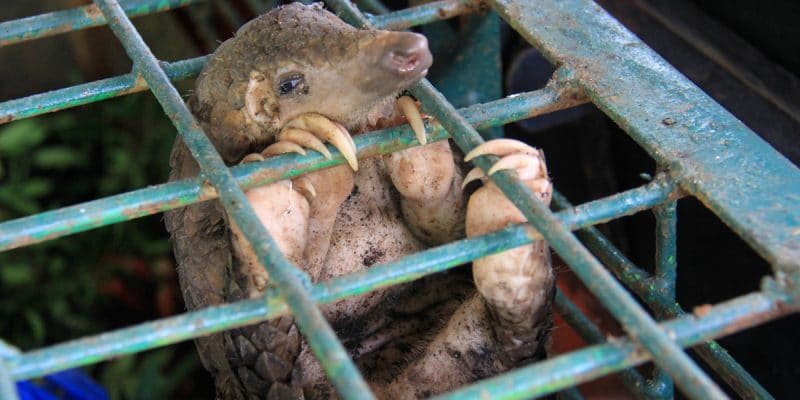In Gabon, about a hundred judicial police officers (OPJ) and judicial police agents (APJ), have just benefited from a two-day training on wildlife legislation and trafficking. The initiative of the Gabonese Ministry of Water and Forests and the non-governmental organisation (NGO) Conservation Justice aims to fight against wildlife crime in Gabon. The Central African country has lost 20,000 elephants in 10 years due to ivory trafficking.
The Gabonese justice system is better equipped than ever to deal with wildlife legislation and trafficking. The subject was at the heart of a training workshop held from 8 to 9 June 2022 in the conference room of the Directorate General of Wildlife and Protected Areas (DGFAP) of the Gabonese Ministry in charge of Water and Forests. About thirty or so judicial police officers (OPJ) and judicial police agents (APJ) present were trained on six themes.
These were: wildlife trafficking: cases of seizures of wildlife products, legislation on the protection of wildlife in Gabon, the Convention on International Trade in Endangered Species of Wild Fauna and Flora (CITES), criminal procedures in the field of Water and Forests, the official report of an offence in the field of Water and Forests, and the rules of ethics and deontology. This initiative of the Gabonese Ministry of Water and Forests and the non-governmental organisation (NGO) Conservation Justice was at its 56th session.
It is part of the Support for Wildlife Law Enforcement (AALF) programme in Gabon. “The capacities of the judicial police are strengthened to promote compliance with the criminal procedures they manage. This specific training is given regularly to Water and Forestry officers as well as to law enforcement officers who also play a key role in the protection of wildlife. This is an example of good collaboration between services of different bodies,” explains Luc Mathot, the executive director of Conservation Justice.
Read also-GABON: when an NGO allows the government to arrest 47 wildlife traffickers
Gabon, touted as a haven for wildlife, has become a new target for poaching networks. According to a Conservation Justice report published in 2015, no less than 20,000 elephants were killed there between 2004 and 2014. Of these, 12,000 were in the Minkébé Park, a protected natural area of 8,000 km2 located in the province of Woleu-Ntem, in north-eastern Gabon. Another 10,000 have disappeared in the rest of the country.
Boris Ngounou







